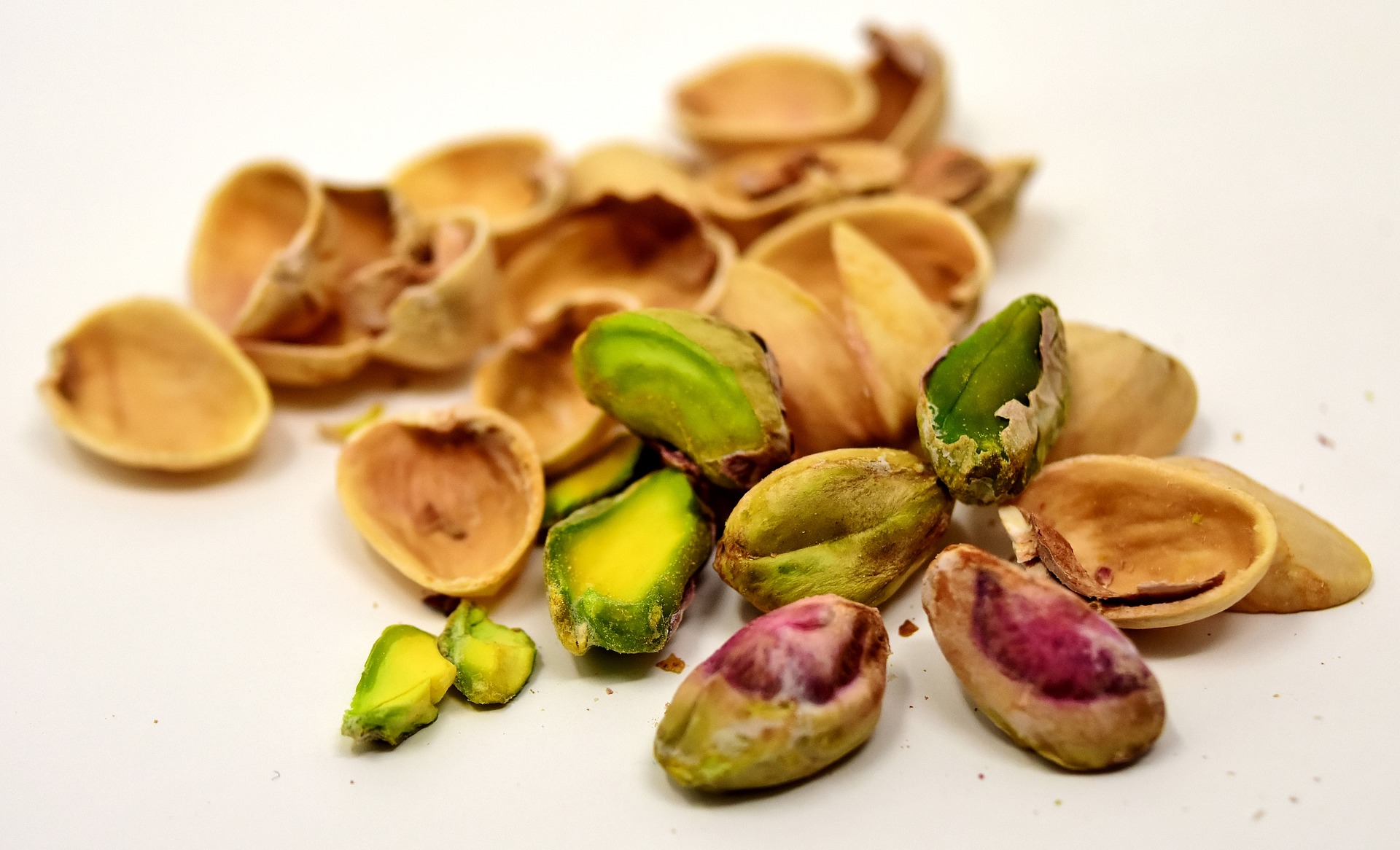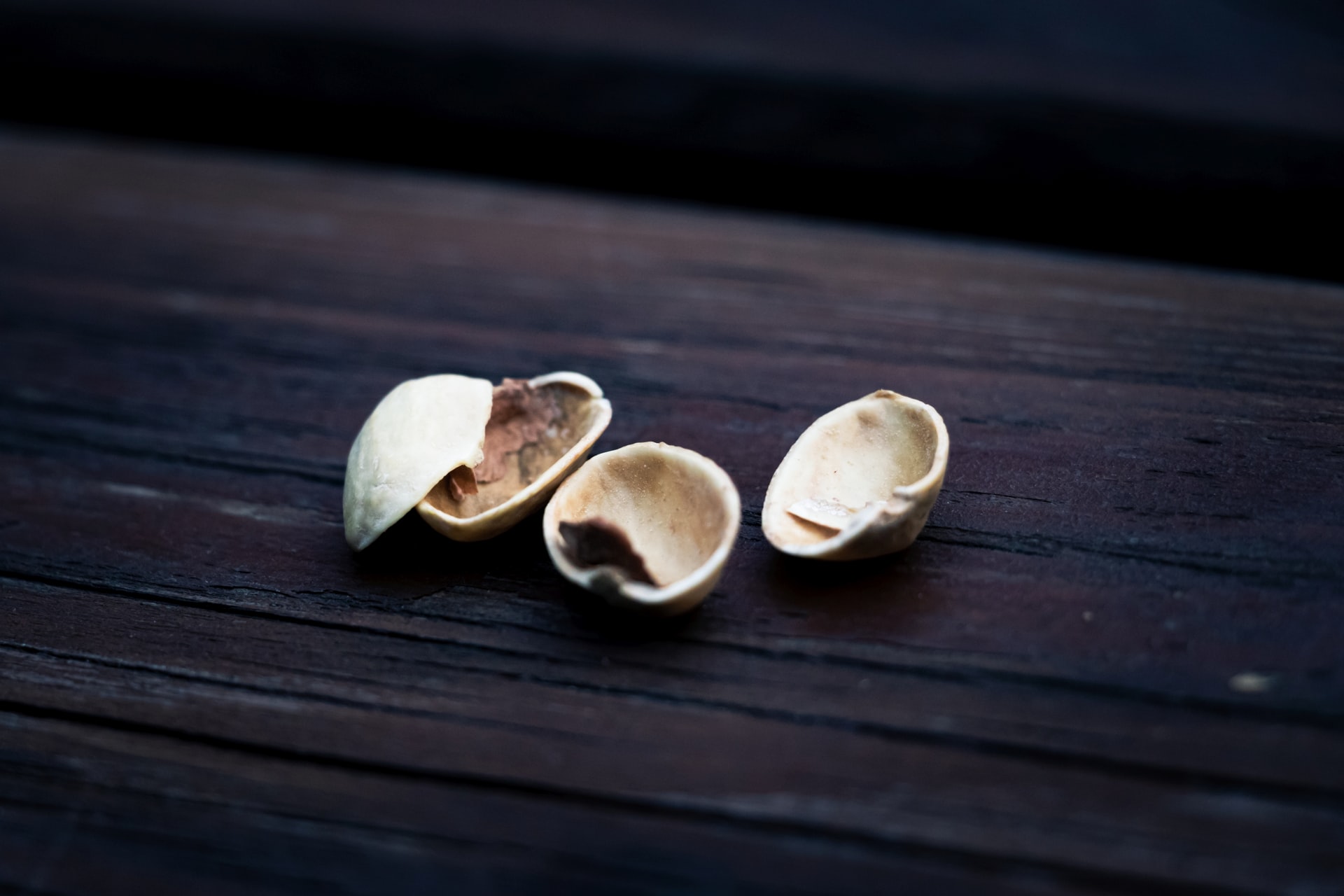Do Pistachios Help You Sleep? Here's The Answer
7th Aug 2020

On those nights when counting sheep turns into staring at the ceiling, waiting for sleep to arrive, you can try reaching for some pistachios.
Yep - it may sound weird, but pistachios are said to improve sleep quality and help you fall asleep quicker!
We’ve done some research to find out if this is true or not. So, do pistachios help you sleep or not? Keep reading to find out!
Why Do Pistachios Help You Sleep?
Recent studies have shown that American pistachios contain melatonin. This is the hormone responsible for regulating your sleep-wake cycle. When melatonin is released, it sends the signal to the brain that it’s time to go to sleep.
Unfortunately, as we get older our bodies produce less of this hormone. This can lead to sleep issues such as insomnia, or leave us struggling to fall asleep. This is where noshing on some pistachios can come in handy!
Melatonin isn’t the only thing these little seeds contain. Pistachios are also packed with:
- Vitamin B6
- Potassium
- Manganese
- Phosphorus
- Copper
- Thiamine
This makes the pistachio small but mighty! This mix of nutrients has plenty of other benefits, such as aiding in weight loss, lowering blood sugar levels, improving gut bacteria, lowering cholesterol and improving blood vessel health.
All of this leads to a healthier you and better quality sleep.
American vs Other Pistachios
Pistachios come from various countries. America and Iran are the two biggest producers. It’s likely that you’ll find both American and Iranian pistachios on the store shelves.
You don’t necessarily have to stick to American pistachios, though. Those from Iran also contain melatonin, although the levels may vary slightly.
Other Foods & Drinks That Improve Sleep
If pistachios aren’t your favorite, try one of these other foods that promote good sleep. They all have amazing health benefits apart from sleep-specific benefits. But every food that improves health and the immune system automatically has a good effect on sleep!
Cherries
Cherries contain melatonin naturally. Researchers have suggested eating a handful of cherries an hour before you go to bed to help you fall asleep and stay asleep for longer.
The extra melatonin you’ll be getting from eating cherries frequently can help you to regulate your sleep cycle.
Cherries also contain vitamin C, magnesium, potassium, and copper, which can help boost your immune system. A healthier immune system also means a better sleep, as your body will heal faster!
Eating cherries can also help to:
- Reduce inflammation
- Lower blood pressure
- Prevent cardiovascular disease
- Improve the health of your hair!
Bananas
Runners often incorporate bananas into their diets to help with muscle cramping, because of the high levels of potassium and magnesium.
Surprisingly, bananas can also help you get to sleep! Potassium and magnesium promote muscle relaxation which helps you sleep better and deeper.
Bananas also contain tryptophan. This gets converted to serotonin (the Happy Hormone!) in the body, which helps to regulate the mood, digestion and appetite.
This regulating function helps with sleep too! It balances your circadian rhythm and also helps regulate body temperature. When you fall asleep, your body temperature drops slightly. This regulation function is important for keeping you at optimal temperature when asleep.
Figs
Figs are also rich in potassium and magnesium! As well as relaxing muscles, they also help with blood flow. Figs are also high in fiber, which keeps you fuller for longer and helps regulate the metabolism.
This is super helpful for sleep, as it helps reduce night time cravings! Studies have shown that lack of sleep and sleep disorders have an impact on a person's metabolism, so this is a double-useful function.
Figs contain vitamins A, B9, C, and K, as well as calcium, zinc, magnesium, sodium, potassium, and manganese. It’s been said that they can also help:
- Reduce cholesterol
- Aid in weight loss
- Relieve diarrhoea
Prunes
Prunes have a reputation! Most people know that they help with constipation, but did you know that prunes can help you get to sleep? They contain high levels of vitamin B6, magnesium and calcium, which help to make melatonin.
You can eat a couple of prunes about 30 minutes before bedtime. They’ll also keep you feeling fuller for longer, due to their fiber content.
Other benefits of prunes include:
- Improvement of anemia (high in iron)
- Help lower blood pressure
- Build muscle
- Develop stronger bones
Oats
Oats are rich in magnesium and calcium and are a natural source of melatonin. They’re also a really good source of tryptophan, even more so if you pair your oats with milk.
All of these things combined make it a very good sleep aid.They also help prevent midnight snacking, as you’ll be kept fuller for longer!
Oats contain vitamin B1 and B5, iron, folate, copper, manganese, zinc, phosphorus and magnesium. They also have lower levels of vitamin B6 and B3, as well as calcium and potassium. You may be surprised that they’re one of the most nutritious foods you can consume!
As well as helping you sleep better, oats can:
- Reduce appetite
- Lower the risk of heart disease
- Control blood sugar levels
- Reduce LDL cholesterol levels
Almonds
Almonds contain high levels of magnesium which, as we’ve mentioned, helps to relax the muscles and promote comfortable sleep. Just like the others on this list, they also contain tryptophan. In addition to relaxing the muscles, tryptophan assists nerve function and keeps your heart at a steady rhythm.
Almonds can help reduce anxiety and depression, which are common sleep-disrupting factors. They lower blood pressure and are loaded with antioxidants. These help protect the cells of the body from premature aging and oxidation-related disease by aiding in healing during sleep.
Herbal Teas
If you ask most people which herbal tea will help you sleep, chamomile will most likely be the first one that comes up. There are, however, a variety of herbal teas that you can drink to improve your sleep. Each has a variety of properties depending on the tea that you choose.
You may choose to drink one of the following teas for a better rest:
- Valerian Root tea
- Lavender tea
- Turmeric tea
- Lemon Balm tea
- Hops tea
As long as you don’t drink them too close to bedtime (don’t want to be running to the bathroom too often!), these teas can help improve the quality of your sleep. Their properties range from soothing digestive troubles to inducing extreme relaxation.
Drinking tea before bed also means you’ll be well hydrated. Sometimes, dehydration can affect the quality of your sleep too. Drinking tea removes that problem!

Conclusion
I’m sure most of us never considered pistachios as a viable option for insomnia relief! But after some research, it would seem that there’s some merit to that opinion.
If you find yourself asking, “Do pistachios help you sleep?” we can say that the answer is YES!
With just a handful of pistachios every night your body will get a dose of melatonin, potassium and magnesium. Each of these has different properties that help you relax, allowing you to fall asleep easier... and stay asleep longer.
Happy sleeping!












